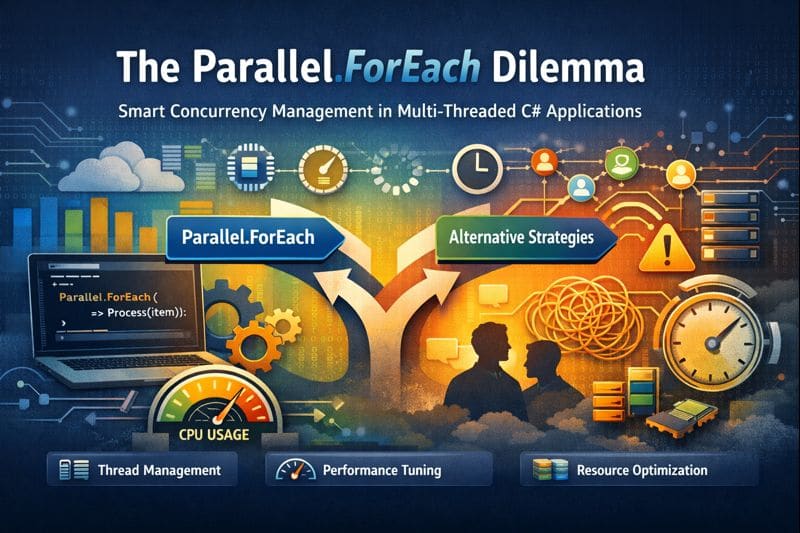Artificial Intelligence in Everyday Life: Transforming the World Around Us
Artificial Intelligence (AI) is no longer a concept confined to science fiction. It has seamlessly integrated into various aspects of our daily lives, transforming the way we interact, work, and live. From virtual assistants to healthcare innovations, AI is becoming an indispensable part of our modern world. In this blog post, we will explore how AI is being utilized in everyday life, its impact on various industries, and what the future holds.
Virtual Assistants: Our Digital Helpers
One of the most visible applications of AI in daily life is the proliferation of virtual assistants like Amazon’s Alexa, Apple’s Siri, and Google Assistant. These AI-powered assistants have revolutionized the way we manage tasks and access information.
Key Features:
- Voice Recognition: Virtual assistants use advanced natural language processing (NLP) to understand and respond to human speech, making interactions seamless and intuitive.
- Task Management: They can set reminders, send messages, make phone calls, and even control smart home devices, streamlining our routines.
- Information Access: Whether you need a weather update, the latest news, or a recipe, virtual assistants can provide instant information with a simple voice command.
AI in Healthcare: A New Era of Medical Advancements
AI’s impact on healthcare is profound, offering innovative solutions for diagnostics, treatment, and patient care. The integration of AI in healthcare is enhancing the accuracy and efficiency of medical practices.
Key Applications:
- Medical Imaging: AI algorithms can analyze medical images (like X-rays and MRIs) with high precision, aiding in the early detection of diseases such as cancer.
- Predictive Analytics: By analyzing vast amounts of data, AI can predict disease outbreaks and patient outcomes, enabling proactive healthcare measures.
- Personalized Treatment: AI helps in creating personalized treatment plans by analyzing an individual’s genetic information and medical history, ensuring more effective and tailored healthcare solutions.
Autonomous Vehicles: Driving into the Future
The automotive industry is experiencing a significant transformation with the advent of autonomous vehicles. AI is at the heart of this innovation, enabling cars to navigate and operate without human intervention.
Key Components:
- Computer Vision: Autonomous vehicles use AI to process data from cameras and sensors to understand their surroundings and make real-time decisions.
- Machine Learning: By continuously learning from data, AI systems improve their driving algorithms, enhancing safety and efficiency.
- Navigation Systems: AI-powered navigation ensures optimal route planning, reducing travel time and fuel consumption.
AI in Retail: Enhancing Customer Experience
Retail businesses are leveraging AI to improve customer experiences and streamline operations. From personalized shopping to inventory management, AI is reshaping the retail landscape.
Key Innovations:
- Personalized Recommendations: AI analyzes customer preferences and browsing history to offer personalized product recommendations, increasing customer satisfaction and sales.
- Chatbots: AI-driven chatbots provide instant customer support, answering queries and assisting with purchases around the clock.
- Inventory Management: AI optimizes inventory levels by predicting demand trends, reducing overstock and stockouts.
AI in Entertainment: Revolutionizing Content Creation and Consumption
AI is also making significant strides in the entertainment industry, transforming how content is created and consumed.
Key Contributions:
- Content Recommendations: Streaming platforms like Netflix and Spotify use AI to analyze user preferences and recommend personalized content, enhancing user engagement.
- AI-Generated Content: AI can create music, art, and even write scripts, pushing the boundaries of creativity and production.
- Enhanced Visual Effects: In filmmaking, AI is used to create realistic visual effects and animations, making movies more immersive.
Ethical Considerations and the Future of AI
While AI offers numerous benefits, it also raises important ethical questions. Concerns about privacy, job displacement, and the potential for biased algorithms need to be addressed to ensure that AI is developed and used responsibly.
Looking Ahead:
- Regulations and Standards: Establishing ethical guidelines and standards for AI development and deployment is crucial to mitigate risks.
- Education and Skills: Preparing the workforce for an AI-driven future through education and skill development will help manage the transition and leverage AI’s potential.
- Collaborative Efforts: Collaboration between governments, industry leaders, and academia is essential to ensure that AI advancements benefit society as a whole.
Conclusion
Artificial Intelligence is undeniably transforming everyday life, making tasks easier, improving healthcare, revolutionizing transportation, and enhancing entertainment experiences. As AI continues to evolve, its integration into our daily routines will only deepen, offering new opportunities and challenges. Embracing AI’s potential while addressing its ethical implications will be key to shaping a future where AI enhances human capabilities and improves quality of life.




Leave a comment